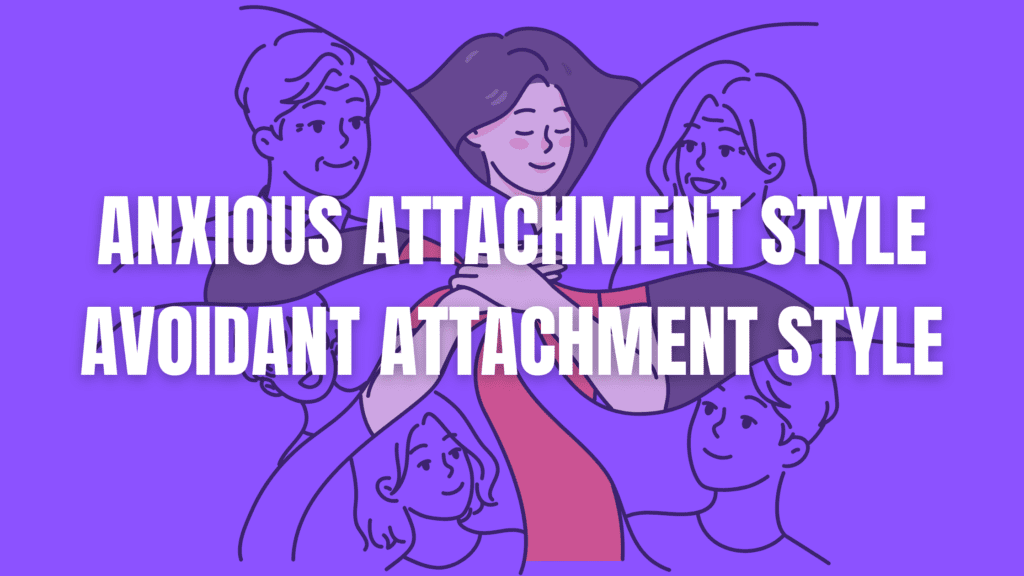Hey there, friend. 💖 I’ve been thinking a lot about love lately. I guess I’ve always been the type to crave something deeper, more meaningful. You know, the kind of connection where feelings and respect are at the forefront. It’s tough, isn’t it, trying to navigate this modern dating world that seems more about swiping than truly connecting? I know I’ve said this before, but I’ll say it again, genuine feelings and respect are everything to me. Without that, I can’t really get intimate with someone. Intimacy means so much more when there’s a real emotional connection. It’s not just about physical closeness; it’s about feeling seen, heard, and understood.
Which brings me to something I think we should talk about today, attachment styles. Specifically, anxious attachment and avoidant attachment. These two styles can have a huge impact on our relationships, and I think it’s really important to understand them, whether you’ve experienced them yourself or noticed them in someone else. It’s deeply personal, but that’s exactly why I think we should have these kinds of honest conversations.
So, What Exactly Are Attachment Styles?
Before we dive in, let’s talk about attachment theory. It’s a concept that explains how people form emotional bonds and connections with others, especially in romantic relationships. Our early experiences with caregivers shape the way we relate to others. If we felt secure and loved growing up, we’re likely to have a secure attachment style, meaning we feel comfortable with intimacy and are able to form healthy, trusting relationships.
But sometimes, things don’t go quite as smoothly, and we develop other attachment styles, like anxious attachment or avoidant attachment. And guess what? That’s totally okay. If you find yourself relating to any of this, don’t worry. You’re not alone, and it’s never too late to work through these things.
Anxious Attachment: The Overthinker
Let’s start with anxious attachment. People with this attachment style tend to crave closeness and intimacy, but they often worry about their partner’s feelings. They might fear that their partner doesn’t love them as much as they love them. This can lead to overthinking and sometimes pushing for more attention or reassurance than is needed. If you’re someone who feels constantly anxious about whether your partner will leave, or if you feel like you need constant validation, you might have an anxious attachment style.
Here’s the thing: anxiety in relationships doesn’t mean you’re not worthy of love. It just means that you may have learned to cope with fear of abandonment, and this can come up in your romantic relationships. Recognizing it is the first step, and I’m telling you, you’re strong enough to work through it. Take it slow, and remember, you are lovable just as you are.
Avoidant Attachment: The Independent Soul
Now, let’s talk about avoidant attachment. People with this attachment style are often self-reliant, and they can struggle with getting too close or being vulnerable. They might feel overwhelmed by too much emotional closeness or find it hard to let people in. In relationships, they might seem distant or detached, even if they care deeply for their partner.
But here’s the thing: avoidant doesn’t mean they don’t care. It’s just that they might have learned to protect themselves by keeping their emotions at a distance. If you’re someone who values independence and feels uneasy when someone gets too close, it’s okay to acknowledge that. It’s about finding balance and learning how to let people in at a pace that feels safe for you.
Why Understanding These Styles Matters
Whether you’re anxious, avoidant, or even a mix of both (yep, that happens too), it’s important to remember that these attachment styles don’t define you. They’re just patterns you’ve learned over time, and with awareness and effort, you can shift them. I know, for me, being an “old school” lover means I need that emotional intimacy and respect before I can truly feel comfortable opening up to someone. It’s not about playing games or rushing things. It’s about letting love unfold naturally and taking the time to get to know someone at a deeper level.
If you find yourself feeling anxious or avoidant in relationships, don’t be hard on yourself. This is all part of the human experience. We all have our baggage, but that doesn’t mean we can’t unpack it, sort through it, and find healthier ways to connect.
Healing and Growing Together
Here’s the real talk: healing from anxious or avoidant attachment is not a quick fix. It takes time, patience, and understanding, both with yourself and with others. But remember, you don’t have to do it alone. Whether it’s talking to a therapist, having honest conversations with your partner, or doing the work to build your emotional self-awareness, there’s always a path forward.
And hey, sometimes it’s okay to laugh at the awkward moments. Relationships aren’t always going to be perfect, there’s no such thing as “the perfect partner.” But the real magic happens when two people can communicate, understand each other’s needs, and meet somewhere in the middle with respect, love, and kindness.
To Wrap It Up
I want to leave you with this: You are worthy of healthy, loving relationships. Whether you’re anxious, avoidant, or somewhere in between, it’s possible to create the kind of relationship that makes you feel safe, seen, and loved.
For me, love will always be about depth, about feeling something real, feeling respected, and letting things unfold naturally. It’s never about rushing or doing things just because it’s expected. True intimacy takes time and trust, and that’s what makes it so beautiful.
So, let’s keep the conversations going, and let’s support each other on this crazy, beautiful journey of love and connection.
You’ve got this, friend. 💫

